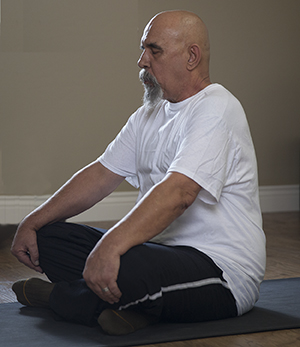Treating Insomnia
Good sleeping habits are a key part of insomnia treatment. If needed, some medicines may help you sleep better at first. But making healthy lifestyle changes and learning to relax can improve your sleep long-term. Treating insomnia takes commitment. But trust that your efforts will pay off. Be sure to talk with your healthcare provider before taking any medicine.
Healthy lifestyle
Your lifestyle affects your health and your sleep. Here are some healthy habits:
-
Keep a regular sleep schedule. Go to bed and get up at the same time each day.
-
Exercise regularly. It may help you reduce stress. Don't do strenuous exercise for 2 to 4 hours before bedtime.
-
Limit naps, or don't nap at all, especially in the late afternoon.
-
Use your bed only for sleep and sex.
-
Don’t spend too much time in bed trying to fall asleep. If you can’t fall asleep, do something (preferably something calming like reading a book, no electronics) until you become tired and drowsy.
-
Stay away from or limit caffeine and nicotine for up to 6 hours before bedtime. They can keep you awake at night.
-
Also don't have alcohol for at least 4 to 6 hours before bedtime. It may help you fall asleep at first. But you will have more awakenings during the night. And your sleep will not be restful.
Before bedtime
To sleep better every night, try these tips:
-
Don't watch TV or use electronic devices at least 30 minutes before your bedtime.
-
Have a bedtime routine to let your body and mind know when it’s time to sleep.
-
Think of going to bed as relaxing and enjoyable. Sleep will come sooner.
-
If your worries don’t let you sleep, write them down in a diary. Then close it, and go to bed.
-
Make sure the room is not too hot or too cold. If it’s not dark enough, an eye mask can help. If it’s noisy, try using earplugs.
-
Don't eat a large meal just before bedtime. If you are hungry, eat a light, healthy snack.
-
Remove noises, bright lights, TVs, cell phones, and computers from your sleeping environment.
-
Turn electronic device alerts off.
-
Use a comfortable mattress and pillow.
Learn to relax
 |
| Learning to relax before bedtime can improve your sleep. |
Stress, anxiety, and body tension may keep you awake at night. To unwind before bedtime, try a warm bath, meditation, or yoga. Also try the following:
-
Deep breathing. Sit or lie back in a chair. Take a slow, deep breath. Hold it for 5 counts. Then breathe out slowly through your mouth. Keep doing this until you feel relaxed.
-
Progressive muscle relaxation. Tense and then relax the muscles in your body as you breathe deeply. Start with your feet and work up your body to your neck and face.
© 2000-2024 The StayWell Company, LLC. All rights reserved. This information is not intended as a substitute for professional medical care. Always follow your healthcare professional's instructions.